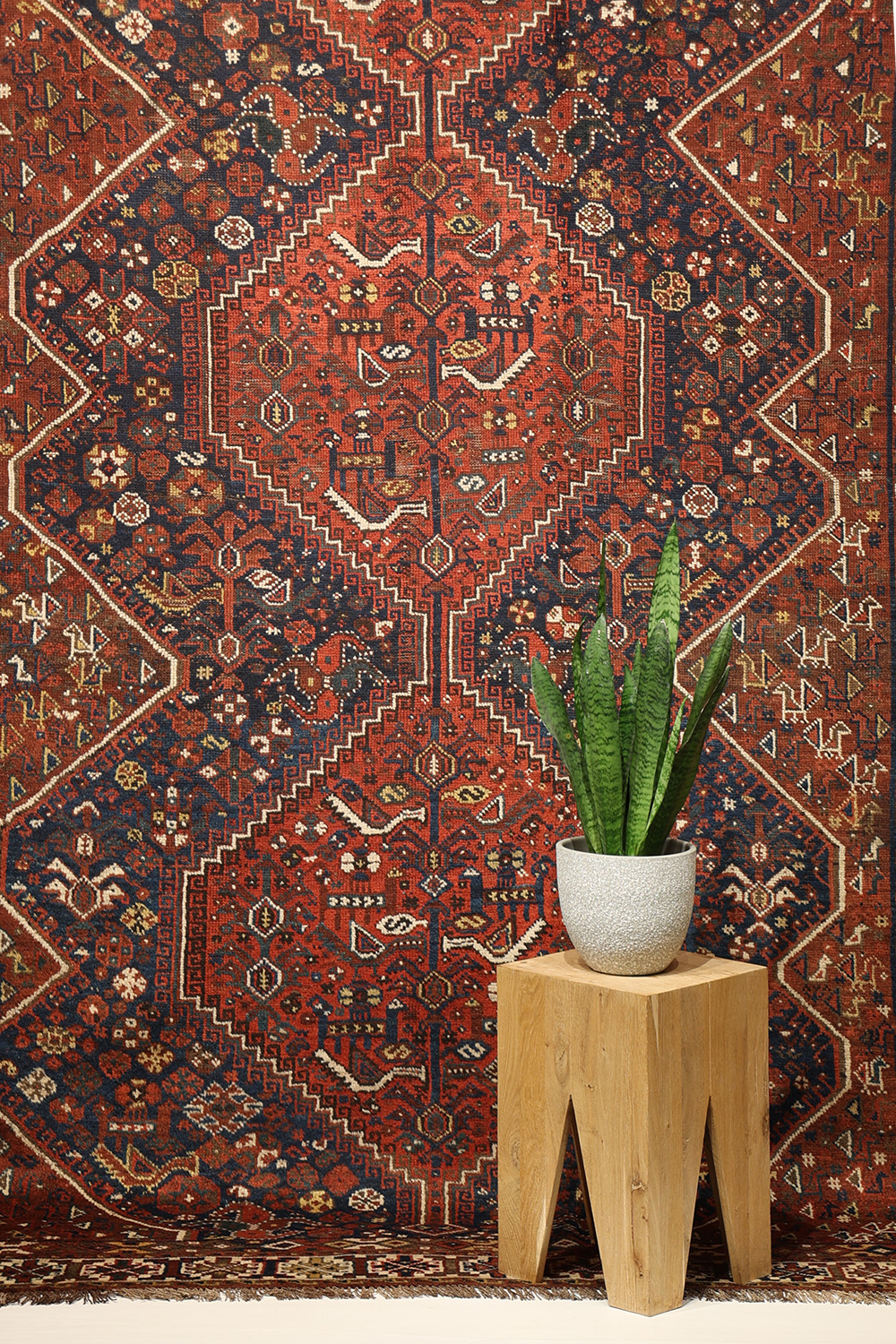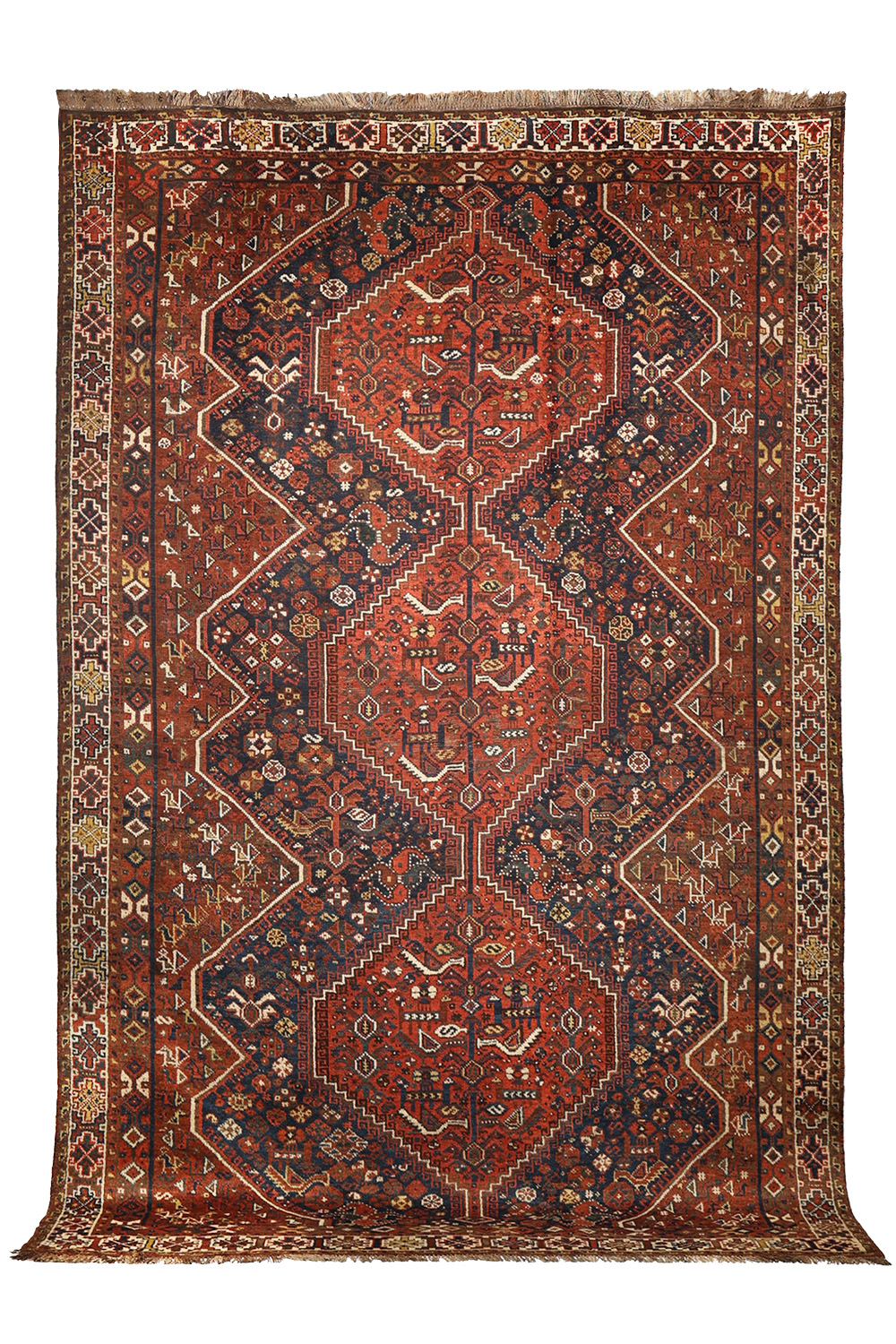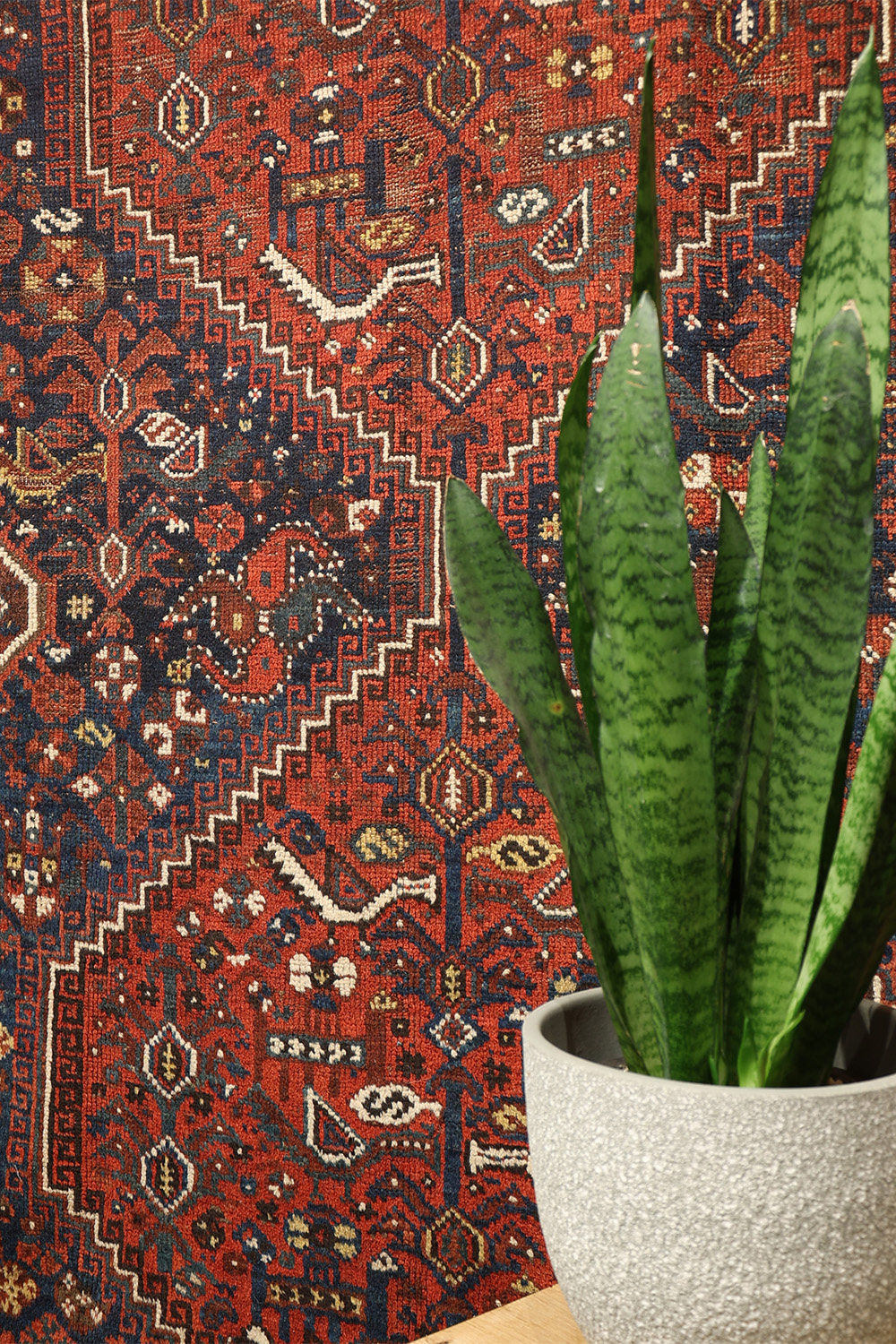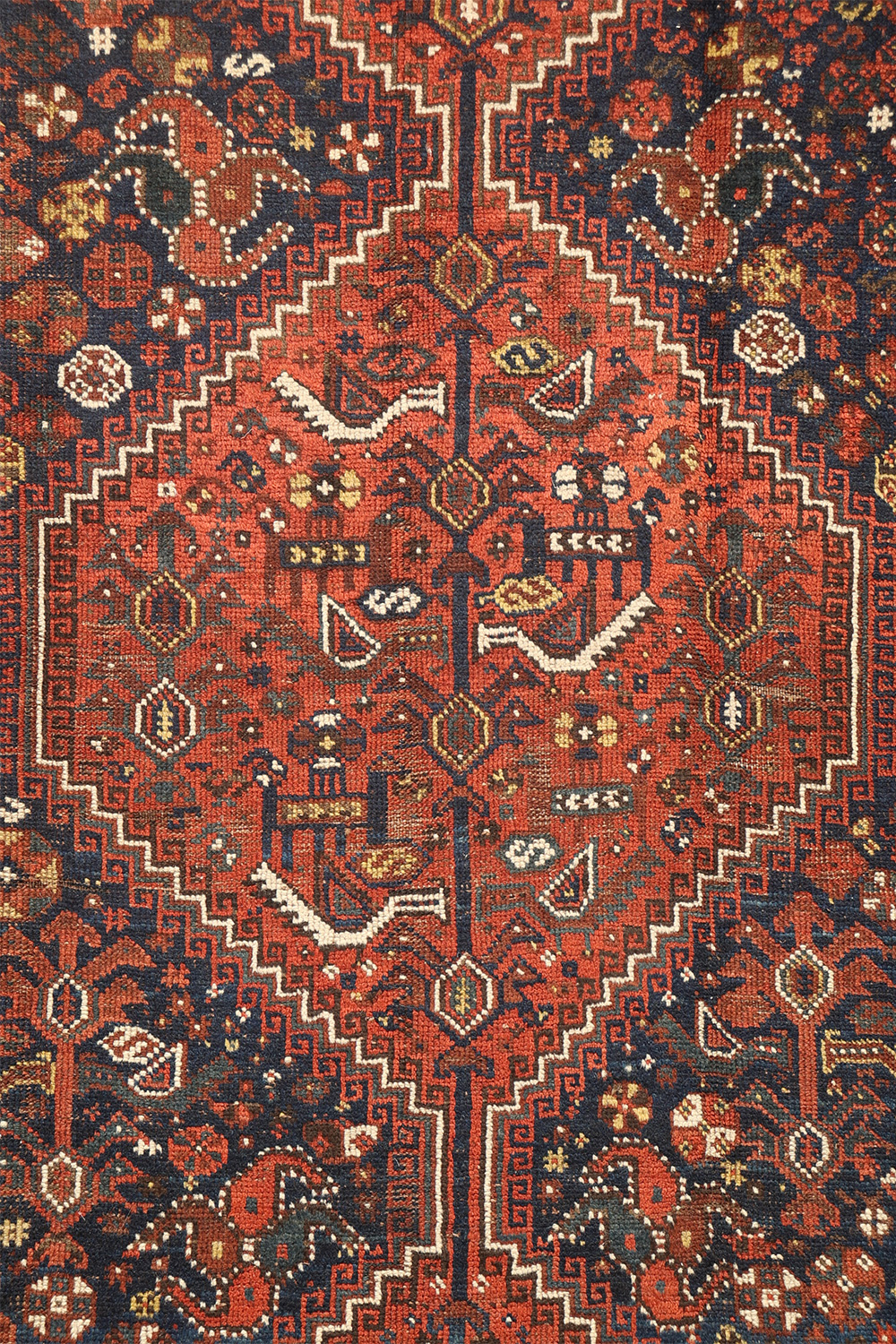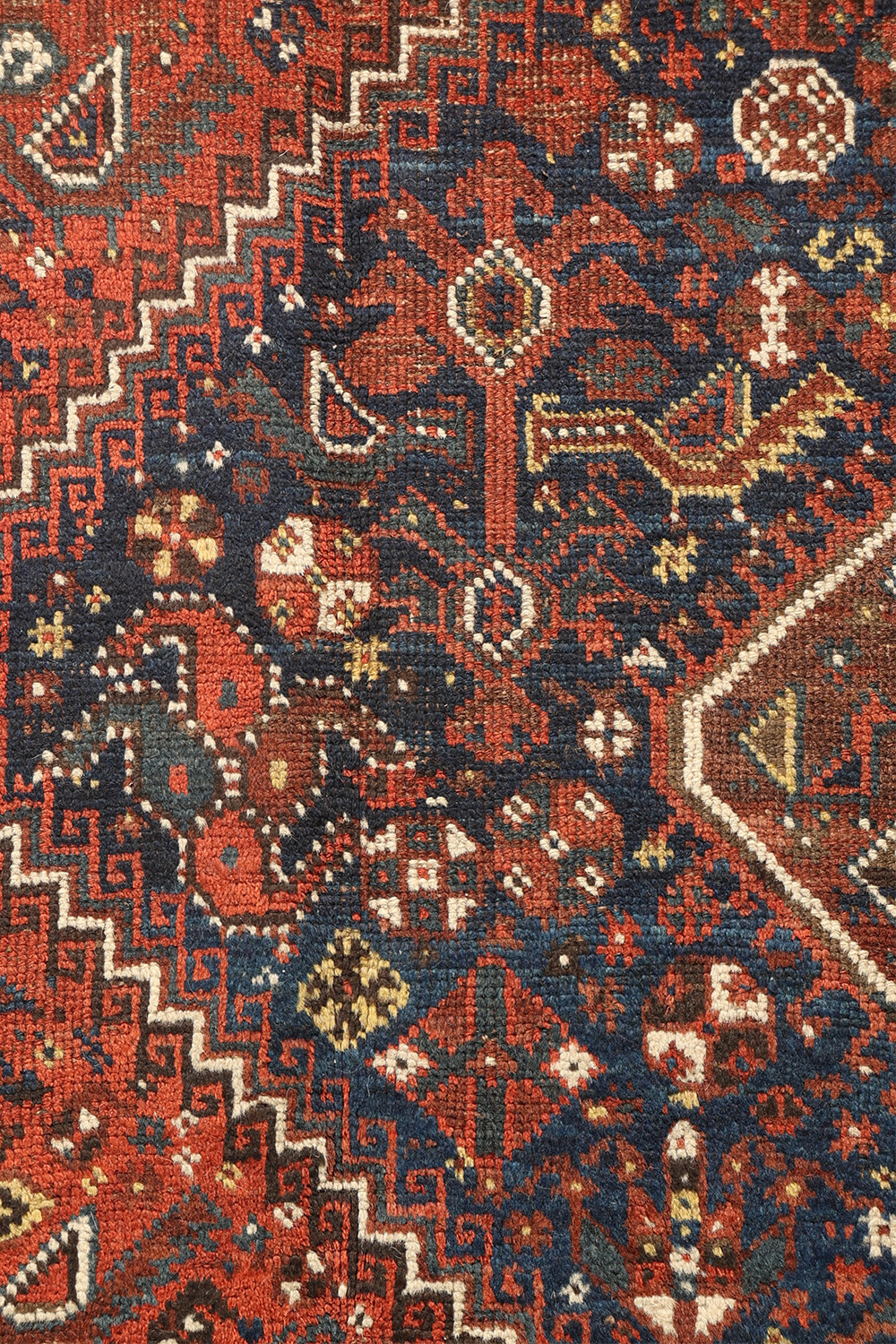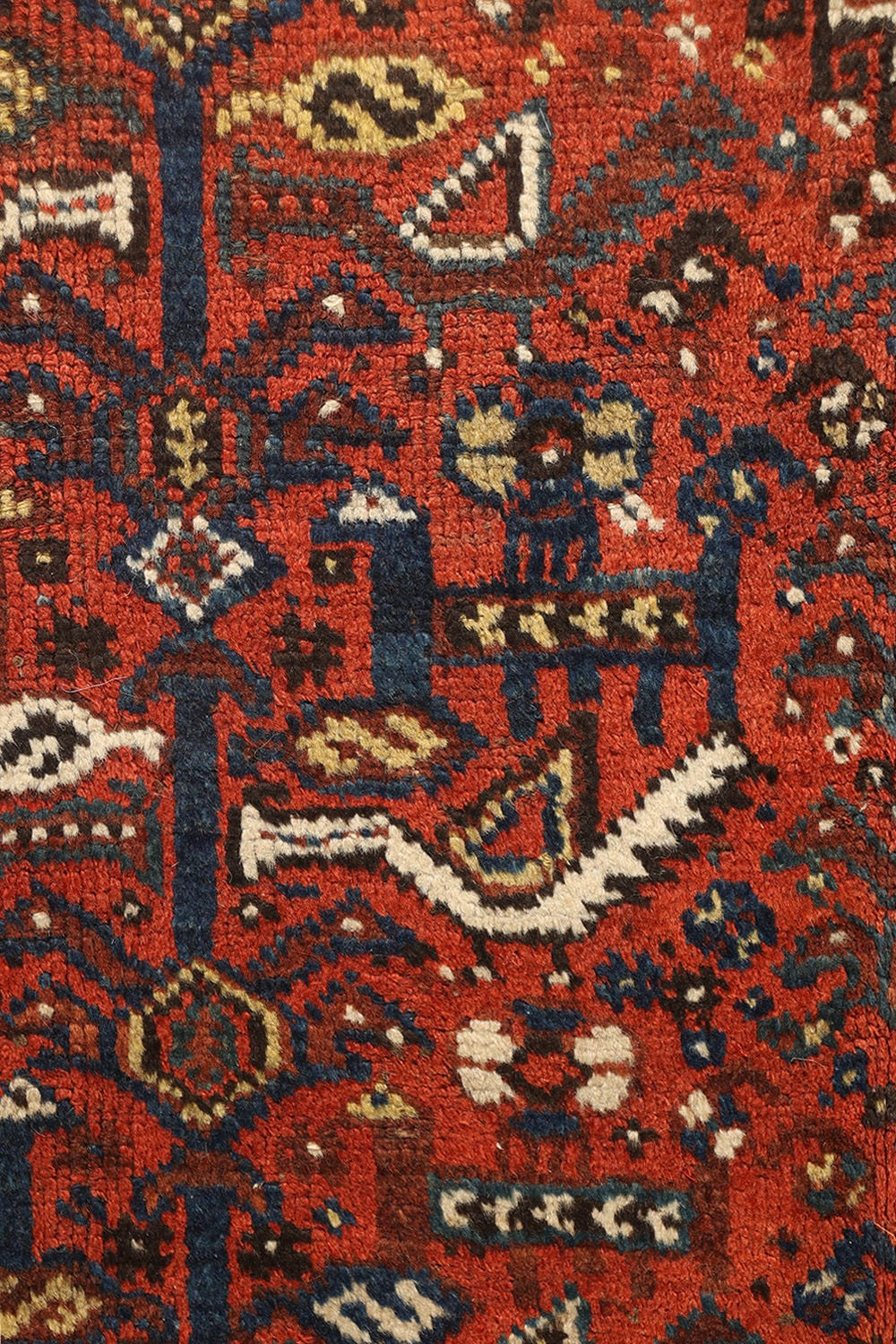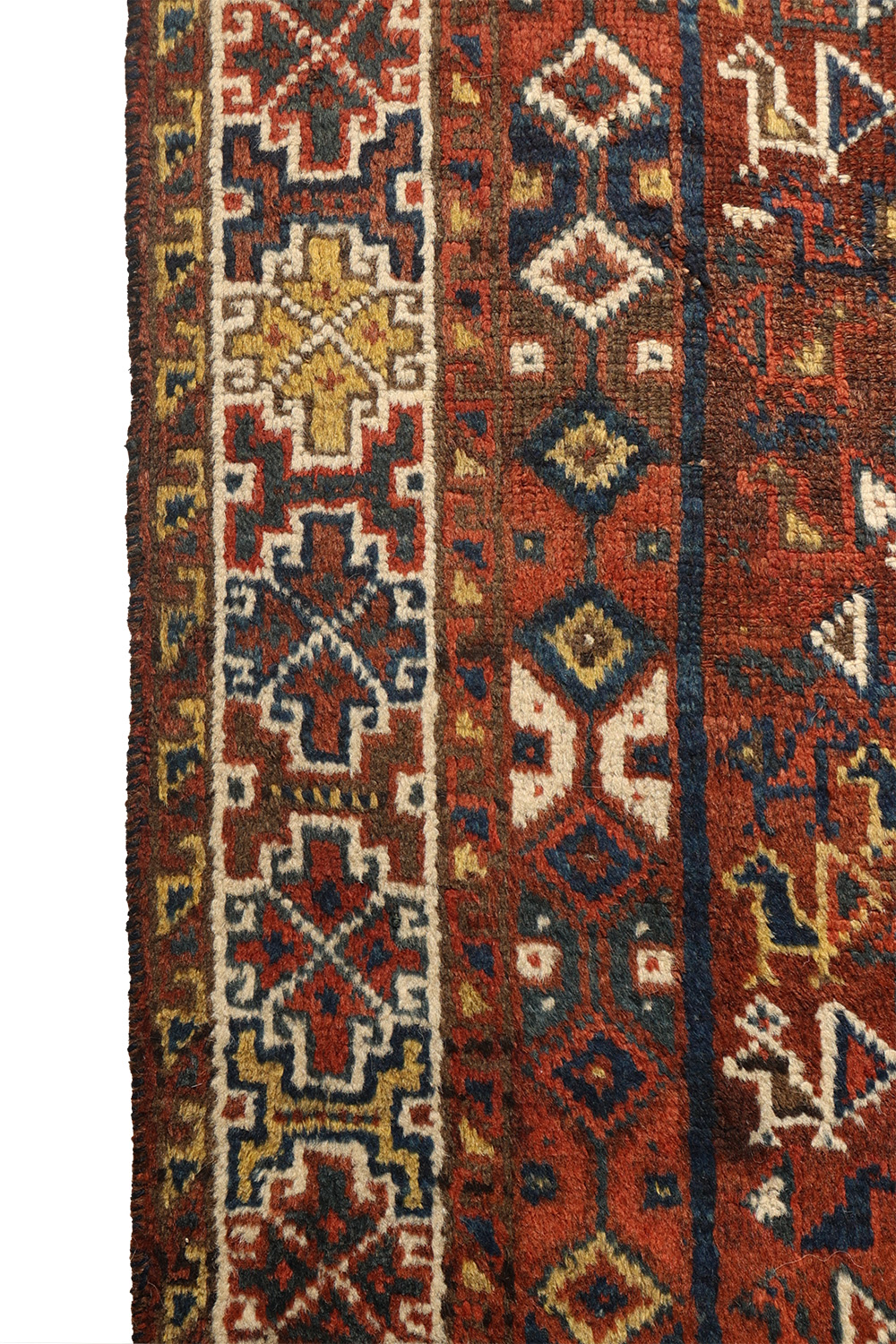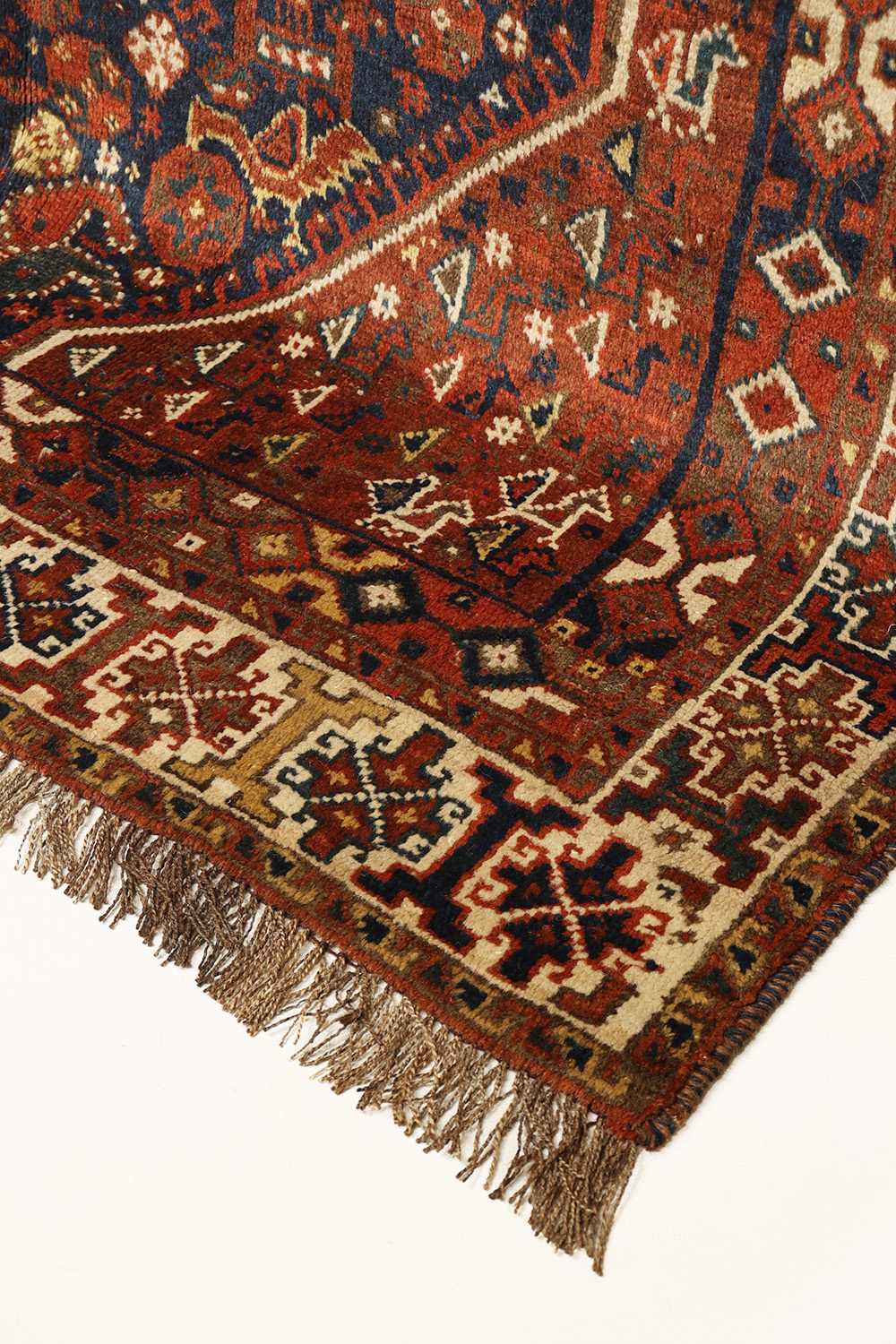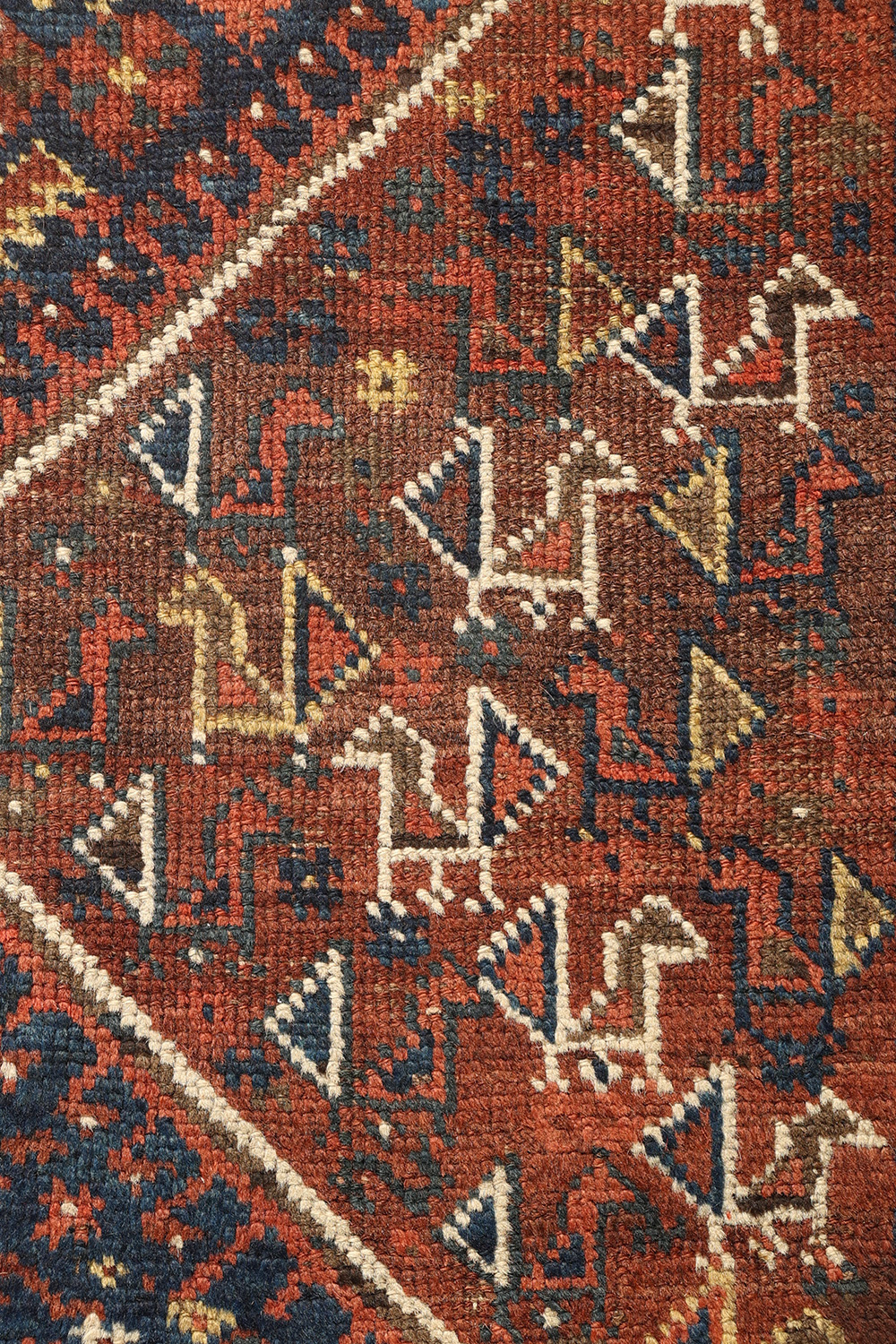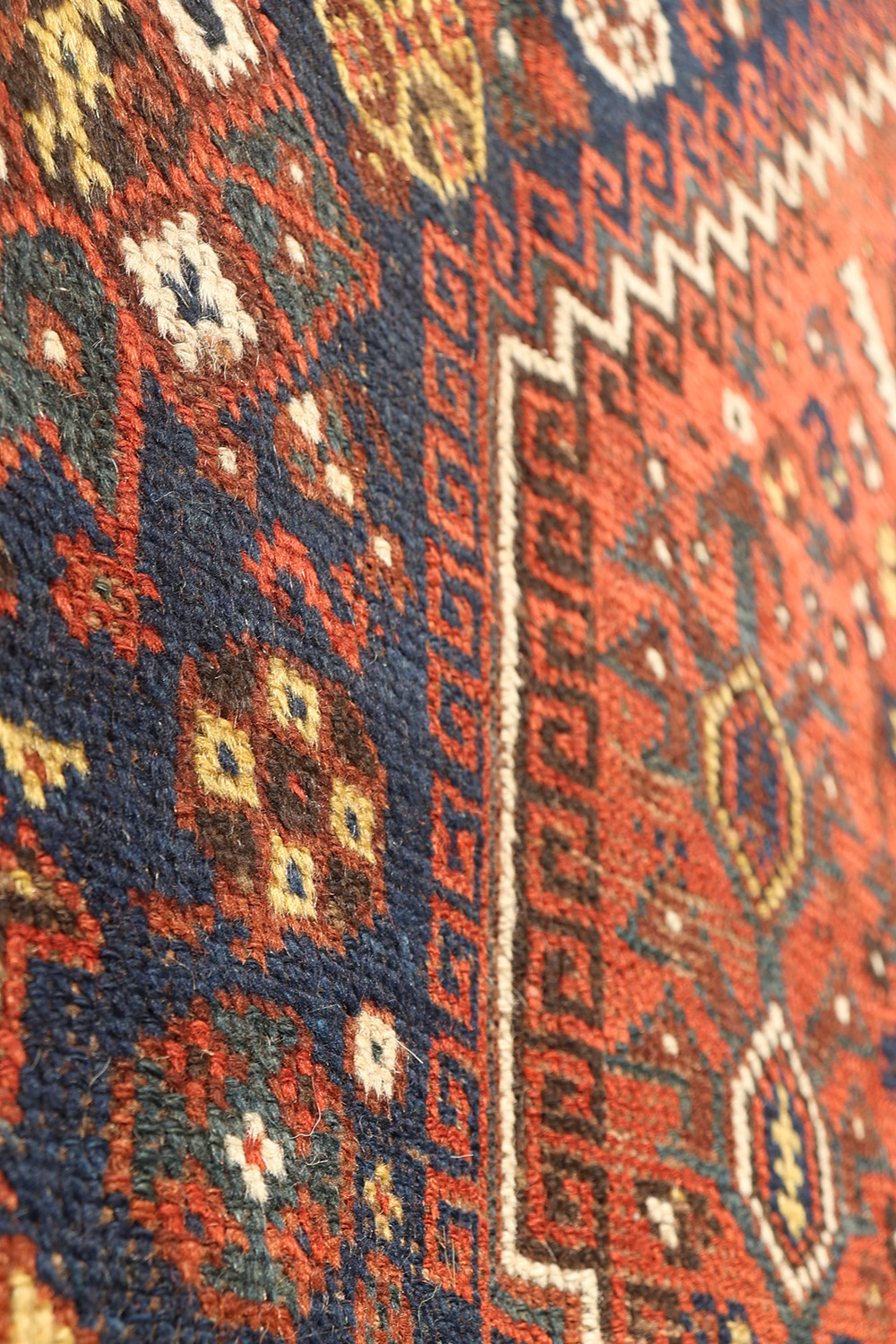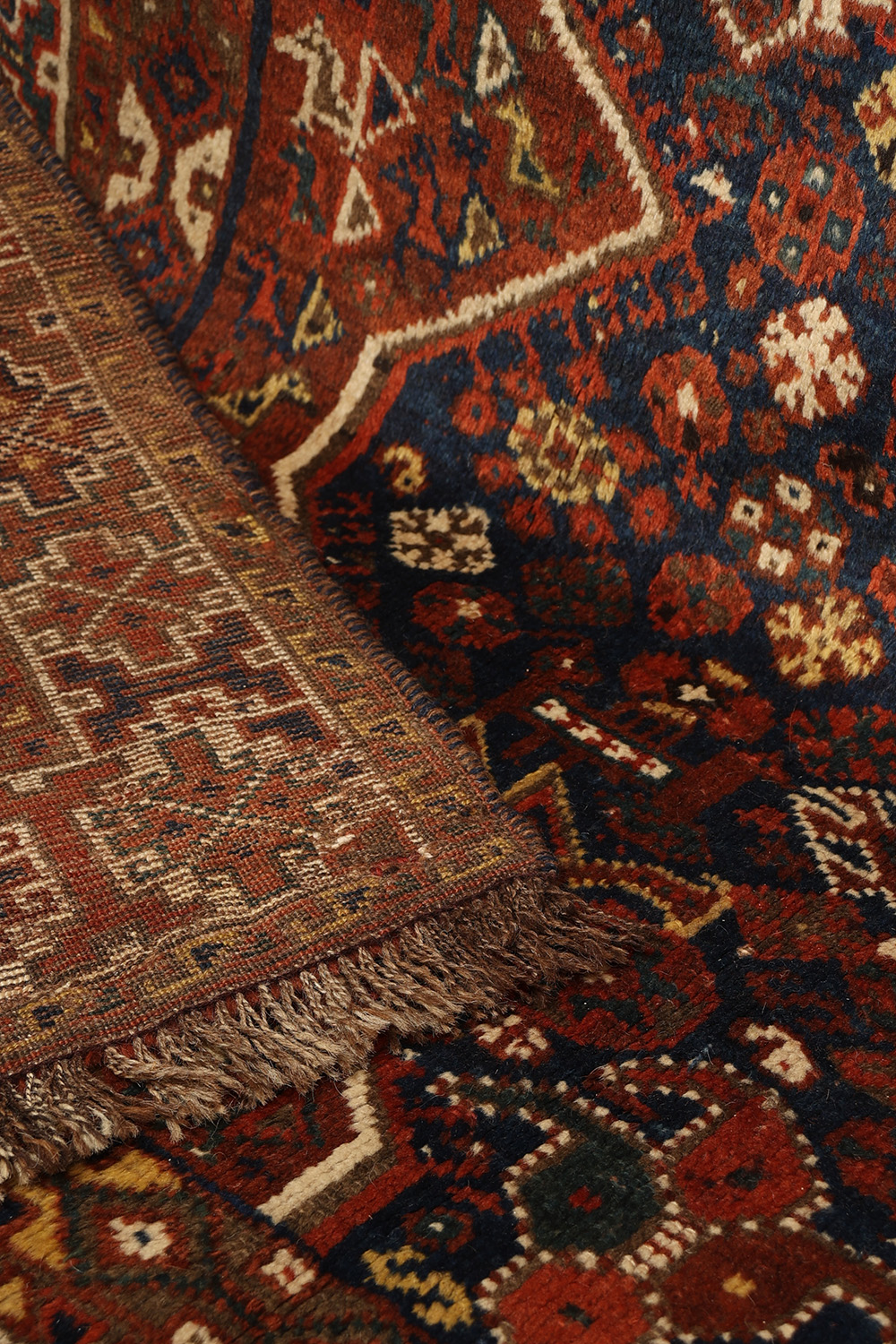3,500.00 €
Wow! A close inspection of this antique Arab rug woven in the Shiraz area reveals a fascinating design. At first glance, it appears to be a typical example of the Arabs from Fars Province. However, there are numerous motifs that make this rug stand out. The three main medallions are separated by the tree of life, whose leaves feature the protective “S” motif and two-headed animals (possibly goats?) with a very unusual motif on their backs. Within these medallions, abstract geometric patterns have bird heads attached to them, and palmettes seem to come to life.
The most striking motif is a swastika formed by the gathering of four paisley or “boteh” motifs.
The terracotta outer field features a flock of charming little peacocks with their triangular tails spread out. The border is geometric and more regular than the rest of the rug.
All dyes are natural and include brick red, mustard, indigo blue, emerald, and ivory wool.
Material: 100% hand-spun sheep wool
Size: 315x197cms
Origin: Arab tribes from Shiraz area, Iran
Date of weaving: 1880-1900
Arab nomads of Fars Province, Iran, are descended from certain Arab tribes of Najd, Yammaneh and Omman who migrated in the 7th and 8th centuries following the Arab contest (640 A.D.) and the advent of Islam. They speak a corruption of Arabic and Persian.
Althoug Arab nomad piled production encompasses a great and astonishing variety of designs, with field patterns much more varied than other tribes of Fars, the Arab weaver´s adherance to a generally dark and sober palette has denied them the artistic recognition they deserve.
1 in stock
Additional information
| Weight | 14 kg |
|---|
Subscribe and receive the lastest news
